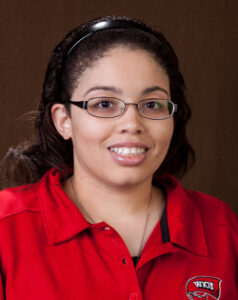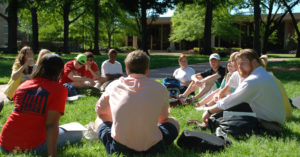
Heather Cowherd



Heather Cowherd
Video, 1 hr & 6 mins
This video is a recording of the presentation I gave in Middle Tennessee State University’s Applied Philosophy Lyceum speakers series on November 17, 2023, in Murfreesboro, TN.
The talk is titled, “Freedom in Education: A Philosophical Critique of Current Educational Policies,” and the abstract for the presentation reads as follows:
Parents and guardians are naturally concerned about what their children are taught in schools. Some lament what they feel is a lack of control over curricula and what are thought to be forces or agendas that they believe are not in kids’ best interests. The arguments advanced in recent conflicts take two main forms. The first, advanced in similar fashion on opposing sides of issues concerning gender and early education, takes the form of arguments to “protect” children. The second, typically arising in discourse about desire for exclusion or selection of curricular messages or content, typically focuses on parents’ rights, in particular, to freedom of choice, whether regarding selection of schools, book banning, or inclusion or exclusion of desired or undesirable subject matters from curricula. In this talk, Dr. Weber will defend the importance of students’ and teachers’ freedom and challenge the overreach of dominant parental views that seek to silence the lived experiences and concerns of marginalized groups.
NOTE: At one point, I accidentally said “Transylvania State University,” which was intended to refer to Transylvania University, which is a private institution. This was an accidental case of misspeaking. The point was to contrast with state institutions, which was on my mind, and probably led me to use that word, “state,” resulting in the opposite of my intended meaning… My mistake!
Philosophical Research Methods: This talk was delivered in fall 2023, when I was teaching a course on Philosophical Research Methods in the University of Kentucky’s College of Education. I mention this because in this talk, I describe my methodology explicitly for the project beginning at minute 14 until minute 19. For those interested in that portion of the talk, you can jump to those minutes.
Thanks again! I am most grateful to Dr. Phil Oliver for organizing a wonderfully welcoming event, which featured a great turn out on a rainy Friday evening. I’m also grateful to the members of the MTSU department of Philosophy and Religion, as well as to Heather Gibbs, who kindly coordinated the details of my visit.
In the spring of 2023, the Ethics and Social Justice Center at Bellarmine University issued a call for proposals for their yearly Commonwealth Ethics Lecture. They invited scholars from around the state to propose a talk to be delivered for their 2023 lecture, considering approaches from all disciplines and with special interest in interdisciplinary dialogue and topics, encouraging “critical reflection, dialogue, and constructive action on contemporary ethical issues in society.” They also welcomed proposals “related to politics, societal well-being, and individual happiness,” as well as that “intersect these themes with regional issues.”
I pitched my proposal in relation to the fact that Kentucky is a state that continues to permit and make use of corporal punishment in public schools. I have long thought about corporal punishment especially as an example of a practice long outmoded and for which evidence has become increasingly clear that better alternatives are available and that long-term effects of the practice are psychologically and medically discouraged. Given this opportunity, it was a great chance for me to focus on corporal punishment directly, so I jumped at the chance finally to focus extensively on this topic.
Kentucky has decreased the use of the form of discipline in public schools to nearly negligible levels, with 17 recorded instances of corporal punishment in the 2020-2021 school year, which suggests that the practice would not be difficult to end at the state level. Given that, Kentucky could serve as a leader among states that presently permit and engage in the practice, to show how others can follow the lead of the Commonwealth state of Kentucky, to end the practice around the country. The video here above is 1hr and 1 min long, concluding at the end of my talk, not including the question and answer session, though that was fun and rewarding for me also.
I am especially grateful to Dr. Kate Johnson for being a welcoming and great host at Bellarmine University for the talk. The attendance and recording of the talk were great and much appreciated.
The PowerPoint slides for my talk are available online here.

Students in EPE 301 can use this video as 1 hour of their field experience observations. The dangers of COVID-19 prompted the creation of this option. Most students are probably not studying the subject of this talk for their papers, but all are working on research in their undergraduate coursework. In that context, students might find the content of this video useful for taking their work beyond the classroom. In addition, students interested in an issue about which they suspect that I could offer some useful thoughts can email me with their questions or comments as part of their field experience work: eric.t.weber@uky.edu.
In the talk, I reference three texts that aren’t mentioned on the handout. Those books were:
Allen, David. Getting Things Done: The Art of Stress-Free Productivity (New York: Penguin Books, 2015).
Brewer, Robert Lee. Writer’s Market 2020 (New York: Penguin Random House, 2019).
Brewer, Robert Lee. Writer’s Market Guide to Literary Agents 2020 (New York: Penguin Random House, 2019).
Every semester, I mention several tools in my classes that I get asked about time and again, so I decided to make a quick video about them. I explain that in the last 5 years, text-to-speech programs have revolutionized how I consume text and how I edit documents. Programs that can read to you allow you to listen to those long emails or that article a friend emailed you while you’re tidying up, walking from A to B, or driving. Here’s a 5 minute video showing what I use and how.
In short, I use the “Read Aloud” function in MS Word most. I love it. The reader can be found under the “Review” tab. The text it reads is highlighted as it moves along. You can easily start, pause, or stop it. You can speed it up, slow it down, or change the voice. You can listen quickly to things you need to skim, and then slow it down for passages that you need to attend to carefully. It’s my favorite and is amazing.
Next, I use Adobe PDF’s reading function under “View” (which is funny, right?), then “Read Out Loud,” then “Activate Read Out Loud,” and then choose the length you want read to you. It’s clunkier and less easily manipulable a function in Adobe, but it works and I use it too. I prefer MS Word’s greater functionality, so when I can, I save PDFs as Word files to have them read to me. One thing to note is that not all PDF files are prepared for text-to-speech, such as when someone embeds text in a photo, without leaving it readable. You can often have Adobe scan & OCR the text (optical character recognition), but not always.
Finally, I talk about @Voice, the program on my Android phone that is amazing, allowing me to listen to text on the go. I listen while walking, exercising, doing chores, or driving. It’s amazing. From a long email, I can select the text and click “share,” or I can share files from Word, Adobe, or text from Web sites. That article I’ve been meaning to read, I share to my phone and listen to it on the drive home. It’s amazing and I love it.
Most of all, I love listening to text when I’m editing or reviewing work in MS Word files. It’s a game changer for me, not only because I don’t have to stare at the screen, but also because I love to listen. It’s for me a preferred way to take in the material.
Bonus for people reading this page: I didn’t put this in the video, but I also use Read Aloud for Chrome, to have my laptop read passages from Web sites to me. It’s not as powerful and smooth as Word, but it’s better than having to copy and paste material for just short passages.
Try some of these tools out. Also, notice that the resources we develop for persons with disabilities empower us all. That’s a vital message we should keep in mind, especially when unfeeling people undervalue all the amazing people around the world with disabilities. We should make our world accessible to all, and when we do, we’ll all benefit.
Graduate students and advanced undergraduates at the University of Kentucky, watch this VIDEO (4m29s) about why you should take my EPE 640 course this fall on the Philosophy of Education.

a) Educators and leaders are expected to have a meaningful grasp of their own philosophies of education;
b) All research is rooted in frameworks of ideas that support and contextualize our work and thought, and that can clarify and help us to focus or be conflicted and confuse us if not carefully considered;
c) Everyone working in educational administration contributes to a system that functions with respect to or in conflict with underlying philosophical ideas. That calls for appreciating and always keeping in mind what we ought to be doing in education.
1) A short “teaching statement,” “Statement on Philosophy of Education,” or related document commonly requested in academic job applications, as well as for administrative positions that often involve teaching courses or otherwise supporting them;
2) A book review for possible publication;
3) A conference-length paper ready for submission to professional calls for papers;
4) A full-length research paper suitable for submission to journals and that could support your other projects;
5) An op-ed-length version of the research paper for possible submission to newspapers or educational periodicals;
6) Credits that can contribute to the Graduate Certificate in College Teaching and Learning.
It’ll be on Wednesdays from 11am-1:30pm in Dickey Hall rm 127.
Questions? Email me at eric.t.weber@uky.edu. You can also connect with me on Facebook, Twitter, LinkedIn, & Academia.edu.
I’m pleased to report on two exciting invitations I’ve had to speak in the spring of 2019. For one of them, the Ron Messerich Distinguished Lecture that I delivered in February, I spoke on “Correcting Political Correctness,” a piece from my book in progress titled A Culture of Justice. On Tuesday, February 26th, I gave the talk at Eastern Kentucky University. While there, I had the pleasure of meeting with students in the journalism program, who interviewed me for Eastern Progress, their television program. I’m quite grateful to Mike Austin for inviting me to deliver this lecture. The attendance was great and the questions and comments offered after my talk were really rich and engaging. Here is the video interview:
The next trip I’m taking will be next week, when I’ll be heading to give three talks at Texas State University San Marcos. I’ll be talking at the local library about “Democracy and Public Philosophy,” from 4:30-6pm on Wednesday, March 13th. Then, on Thursday, March 14th, I’ll be talking about “Culture and Self Respect” from 2-3:00pm in the Alkek 250 Theater on campus. Friday morning, March 15th from 9-10am I’ll be talking about “Democracy and Leadership” in PS3301. More on that as it develops, but it is coming soon.
I’ve posted a number of recordings of interviews and talks I’ve given on Uniting Mississippi. This talk is on my next project, which is still in progress. The book is titled A Culture of Justice. One of the chapters that is in progress is the subject of the talk I gave at Purdue University. Here’s the video, about 1hr 28 mins:
If you’re looking for a speaker, visit my Speaking and Contact pages.
“‘Uniting Mississippi,’ Ep4 of Philosophy Bakes Bread”
by Eric Thomas Weber
Sorry, listening to the audio on this website requires Flash support in your browser. You can try playing the MP3 file directly by clicking here.
Now that I’m finally catching up with my grant reporting obligations, I’m returning to work from October of 2015. We snagged some nice pictures of Judge Reeves while he was here and we recorded the video of the open forum discussion we held. U.S. District Judge Carlton Reeves of Mississippi’s southern district caught my attention in particular with the speech he delivered at the sentencing case of a racially motivated murder in Jackson, MS. NPR called his speech “breathtaking,” and it certainly is.
When I read it I was so moved that after a period of absorbing his deeply thoughtful remarks, I felt compelled to write to him and tell him how much what he said meant to me and to Mississippi. On a whim, I ventured to invite him, were he willing and ever able, to come talk with one of my classes, particularly on the Philosophy of Leadership. He got back to me the same day to say that he would be delighted to come. That’s the kind of guy this now famous judge is. [Video is at the bottom of this post]
Continue Reading »
iTunes has it too.
“Uniting Mississippi”
This episode considers what philosophy has to say about leadership. It features a recorded presentation I gave at the Center for the Study of Southern Culture on my September 2015 book, ‘Uniting Mississippi: Democracy and Leadership in the South.’ Though Mississippi is the focus of my application, the principles and challenges apply through the South and beyond.
Check out the other episodes of Philosophy Bakes Bread here.
Finally, if you’d prefer to “watch” the podcast on YouTube, here it is: